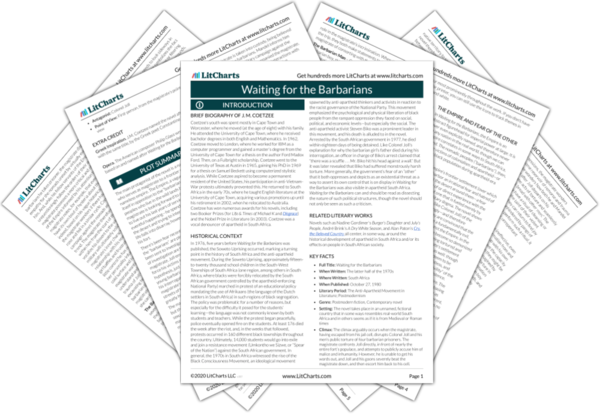LitCharts assigns a color and icon to each theme in Waiting for the Barbarians, which you can use to track the themes throughout the work.
The Empire and Fear of the Other
Torture, Inhumanity, and Civility
Sexuality, Anxiety, and Old Age
Truth, Power, and Recorded Reputation
Independence, Duty, and Betrayal
